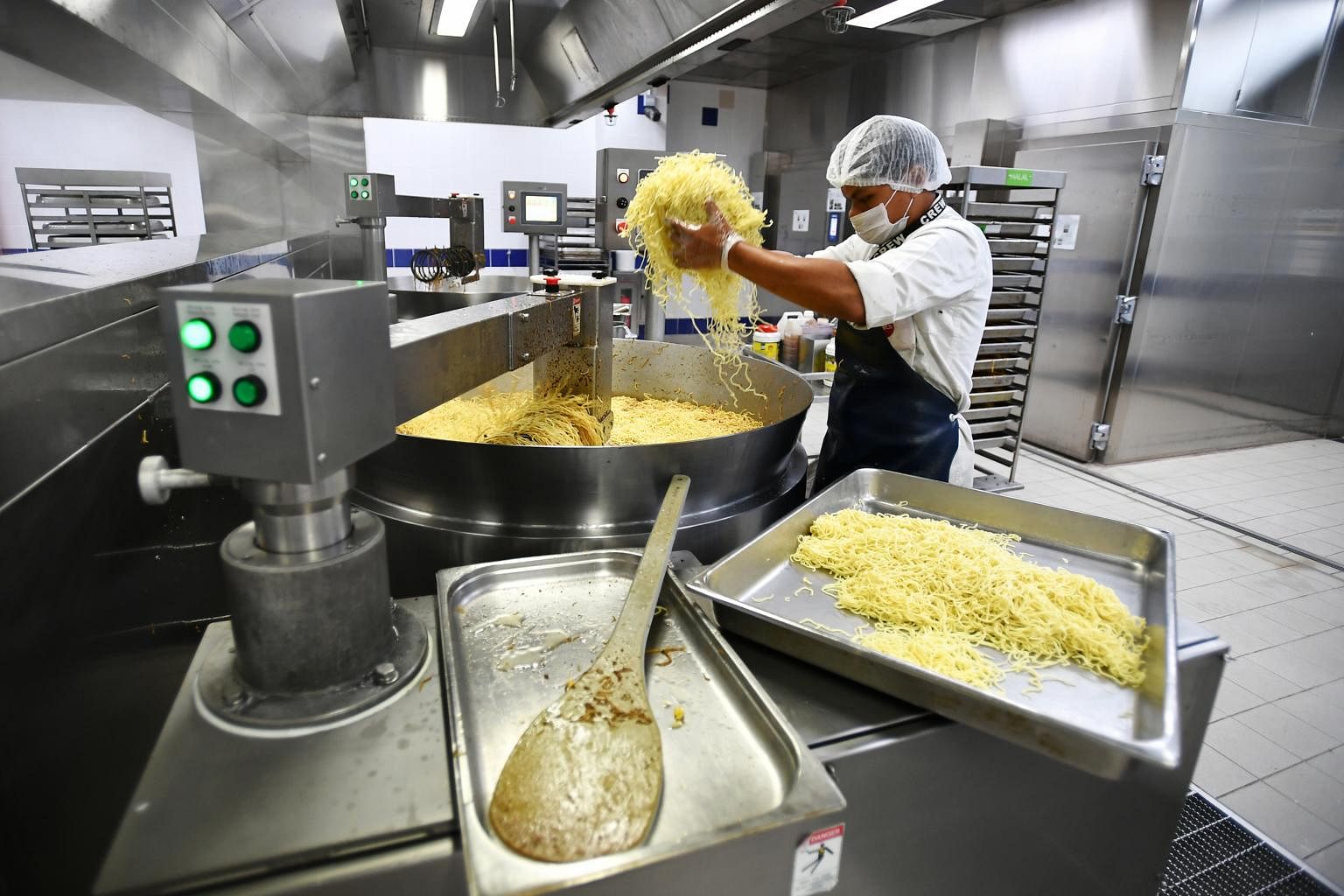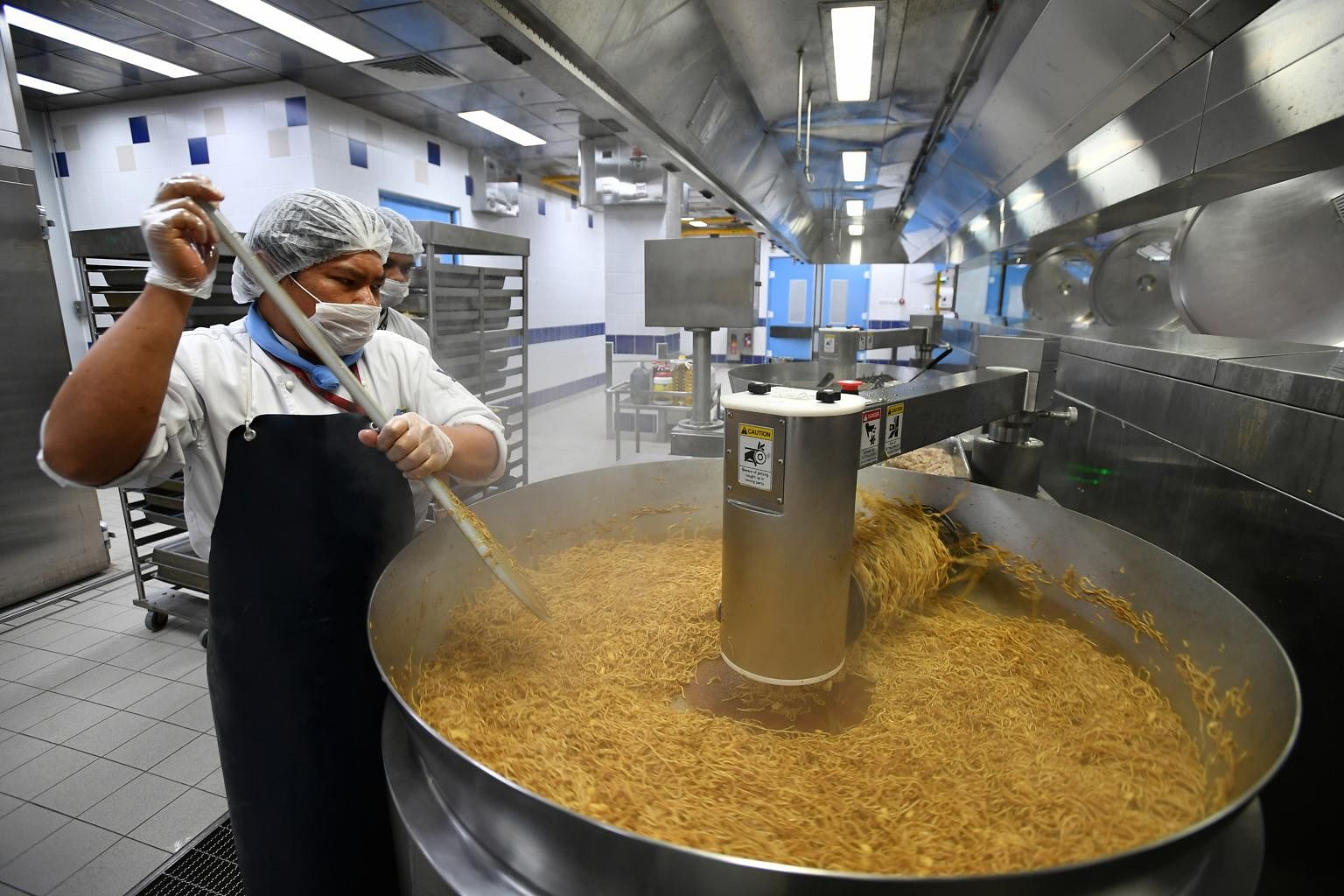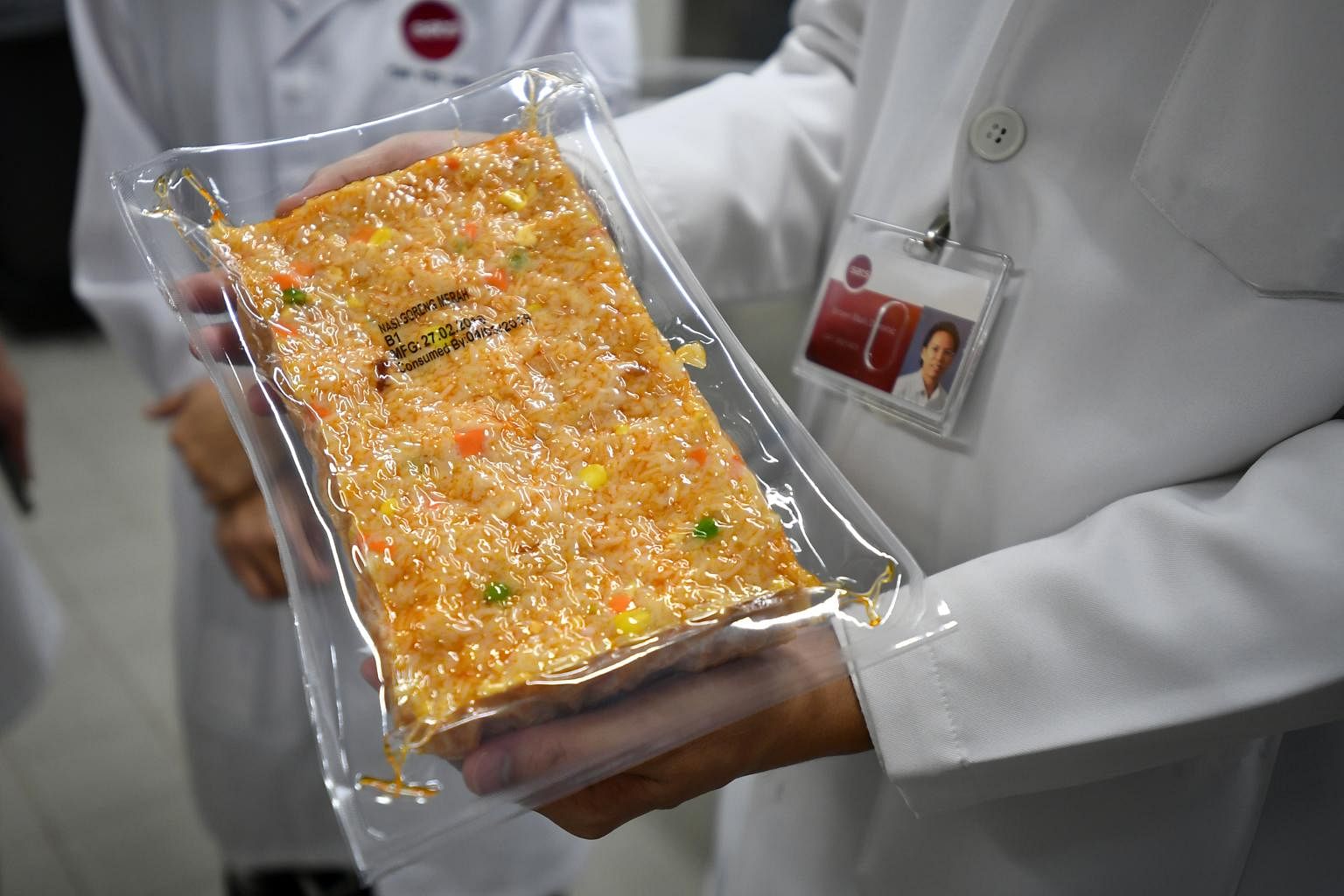Longer shelf life for in-flight meals: Sats' ready-to-eat meals that can be kept up to 24 months
Sign up now: Get ST's newsletters delivered to your inbox
Karamjit Kaur
Follow topic:
SINGAPORE - After every flight, extra meals end up in the bin.
To reduce waste, Sats, a major player in the food industry and Changi Airport's main airline caterer, has invested in new technology to extend the shelf life of cooked food, which, as a result, helps to cut wastage.
Fresh meals that are immediately chilled can now be stored for up to 90 days without added preservatives, instead of the typical 48 hours.
It is also possible for ready-to-eat-meals, including braised chicken rice, chicken briyani, beef stroganoff, pasta alfredo and black pepper chicken udon to be stored, without refrigeration, for between six and 24 months.
This can be done with no adverse impact on food safety, nutrition or taste, Sats stressed, adding that shelf life is extended with pasteurisation and sterilisation.
Pasteurisation is the process of treating food with mild heat for a short time to reduce microbial growth in the food.
With sterilisation, heat and pressure are applied to eliminate all forms of bacteria and enzyme activity.
Sats showcased the new technology on Monday (March 11) at the launch of its extended kitchen facility at Changi North, which is part of a $25 million investment.

The kitchen can now produce up to 60,000 meals a day, compared to 45,000 before, Sats told Trade and Industry Minister Chan Chun Sing and other guests at the event.
Sats has another kitchen at Changi Airport, next to Terminal 4.
Professor William Chen, director of the food science and technology programme at Nanyang Technological University, told The Straits Times that food spoils when the environment is conducive for microbial growth and oxidation reaction.
It causes a change in the nutritional value of food products and how they taste.
However, if food products are properly processed and stored, they can be safely stored for several years, he said.
"For in-flight ready-to-eat meals, it would be desirable to separate watery portions, for example sauces, from solid portions. This is because water is needed for microbes to proliferate, causing food spoilage," Prof Chen added.
"Take chicken rice for example. If the cooked rice, chicken meat and sauce are in separate packets and sterilised, the food stays safe for consumption even after several years."
The technology adopted by Sats is "very significant, as it would lead to less food waste and less packaging waste", he said.
"With strict government regulations on food safety, consumers should not worry about safety, nutrition or taste of in-flight ready-to-eat meals sterilised using the adopted technology," Prof Chen assured.
Globally, airline passengers generated 5.2 million tonnes of waste in 2016, based on the latest industry estimate available.
This includes not just food but all other waste as well. The figure is set to double in 15 years.
Singapore Airline's budget arm, Scoot, is the first carrier to adopt the new technology and will feature some of the meals from June.
SIA itself has no plans to do the same at this time.
Its spokesman told ST: "However, we are open to exploring potential opportunities in future."
At the Changi North facility, Sats is also boosting efficiency with new equipment like giant auto-fryers.

With the equipment, it takes half an hour to cook 60kg of fried rice or noodles, compared to 90 minutes previously.
The firm is also harnessing technology to simulate production lines so that resource and manpower planning can be optimised.
Mr Alex Hungate, Sats' president and chief executive officer, said the new meals produced with the state-of-the-art technology, will benefit both retail and airline consumers.
"Families today have less time to prepare meals at home, so they are increasingly turning to ready-to-eat meals.

"Instead of eating manufactured food and snacks that might include added preservatives, now everyone can eat meals they love, conveniently and safely, with minimal food waste.
"We serve over 170 million meals across more than 35 locations in Asia, so we have the scale to source and cook authentic, tasty meals efficiently and consistently."

